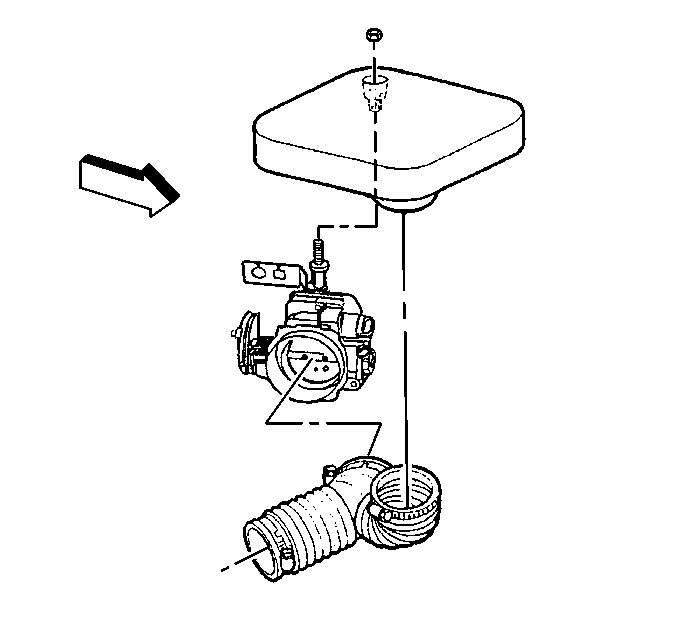Removal Procedure
Important: Over extended time and mileage, deposits may accumulate on the back of the throttle valve plate. The source of the deposit is EGR gas. Typically these deposits pose no problem. Occasionally the deposit may accumulate to a point where perceived pedal effort is effected. This procedure should not be performed on vehicles with mileage under 80,450 kilometers (50,000 miles).
- Remove the air inlet duct and the resonator.
- Inspect the throttle body bore and the throttle valve plate for deposits. It is necessary to open the throttle valve in order to inspect all surfaces.
- Clean the throttle body bore and the throttle valve plate using a clean shop towel with GM Top Engine Cleaner, P/N 1052626 or AC-Delco Carburetor Tune-Up Conditioner, P/N X66-P, or an equivalent product.
- Remove and disassemble the throttle body for cleaning if the deposits are excessive. Refer to the following procedures:
- After disassembly, clean the throttle body using a parts cleaning brush. DO NOT immerse the throttle body in any cleaning solvent.
- Assemble and install the throttle body if previously done. Refer to the following procedures:
- Install the air inlet duct and the resonator.

Notice: Do not insert any tools into the throttle body bore in order to avoid damage to the throttle valve plate.
Notice: Do not subject a throttle body assembly which contains the following components
to an immersion cleaner or a strong solvent:
• Throttle position (TP) sensor • Idle air control (IAC) valve • Sealed throttle shaft bearings
